I’ve been spending the last few months trying to clear out my game backlog. A few days ago, I finished Company of Heroes, which I had picked up in a Steam sale for some obscenely low price. Company of Heroes is a real-time strategy game set in the hotly-contested regions of France following the Normandy Invasion in World War II.
The player gathers resources by capturing and holding specific regions of the game map. Each map in the campaign is a particular battleground, usually a town or a strategic choke-point like a bridge. The player can spend his resources to call in reinforcements like rifleman, machine-gun teams, and tanks. The game has a lot of strategic depth. There is a large emphasis on maneuvering, flanking, and making sure your tanks and guns are facing the right way. Engineers can lay anti-tank mines on the roads, and if you can swing your own Shermans behind an approaching Panzer, your guns can make short work of its weaker rear-facing armor. The game is well-crafted, with great visuals and plenty of interesting gameplay moments. It is a fantastic game, and its review scores show that.
But I didn’t enjoy it.
I should point out here that I love RTS games. I have spent entirely too much time playing games like Star Trek: Armada and Age of Empires, and I eagerly await the release of Planetary Annihilation. I love the setting. It provides varied gameplay opportunities, steeped in real modern history. I just didn’t enjoy playing the game. I spent most of the campaign saying, “Maybe this is the last mission. No? Maybe it’s the next one.” I couldn’t wait to finish it. Why is that?
Now that I’ve had some time to mull it over, I think I’ve come up with an answer. A lot of the mechanics don’t fit the genre. When I say genre, I’m not talking about the setting or the thematic tone, like I would if I was talking about movies or books. I’m talking about “what sort of game is this?” The “sort of game” this is, is real-time strategy. For me, all of these varied, strategically deep mechanics didn’t fit. Sure, it was fun when I only had a few units, but once I had more that four or five it became overwhelming. I couldn’t keep all of my soldiers actively pursuing my goals, while making sure that my guns and tanks were actually facing the enemy. For me, micromanagement is the enemy of a fun RTS. I felt harried, rushed. I simply couldn’t keep up with the need to babysit my tanks so they didn’t blunder backwards into enemy fire. The game would tell me that one of my units was under attack, but wouldn’t give me any idea of where. The experience was simply not fun.
When I started thinking about these problems, a curious thing happened. I was reminded of another game I played recently, but it wasn’t an RTS like Company of Heroes. It was the turn-based tactical strategy game XCOM: Enemy Unknown. XCOM shares a lot of ideas with CoH, like a focus on maneuvers, flanking, and covering fire. Unlike CoH, XCOM is not a slave to the clock. You have time to plan your actions, weigh your risks, and set up strategies. You have however long you need to attend to each of your soldiers in turn. You are never rushed; your every action is deliberate.
The real-time strategy genre is home to some fine games, but not every game is a good fit. My conclusion is that a tactics-focused game like Company of Heroes would have been much better suited to another genre. Is it a bad game? No! Did it live up to it’s potential? No, at least for me.
When you design a game, it’s important to make sure that the mechanics fit the setting, and the theme, and the tone of the game. But what can be overlooked, and may have been in the case of Company of Heroes, is that the basic mechanics of a game need to fit well into the larger gameplay context. Genre matters for a game like this because complex strategic and tactical mechanics are simply very hard to do in a game where the player’s attention is constantly being pulled in many different directions.
So am I wrong? Maybe I’m missing the point of real-time strategy games. Maybe XCOM has spoiled this type of game for me. Maybe there was a completely different reason for my lack of fun. I don’t know, I’m not a game critic. I just like games.
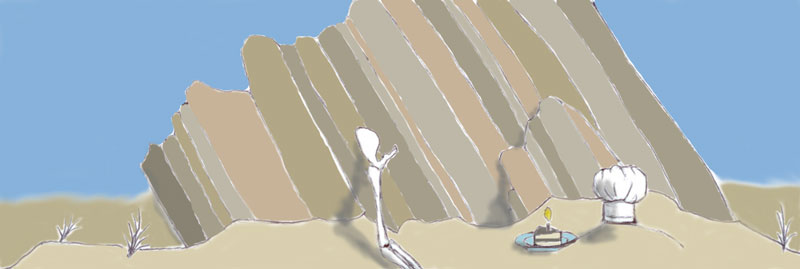
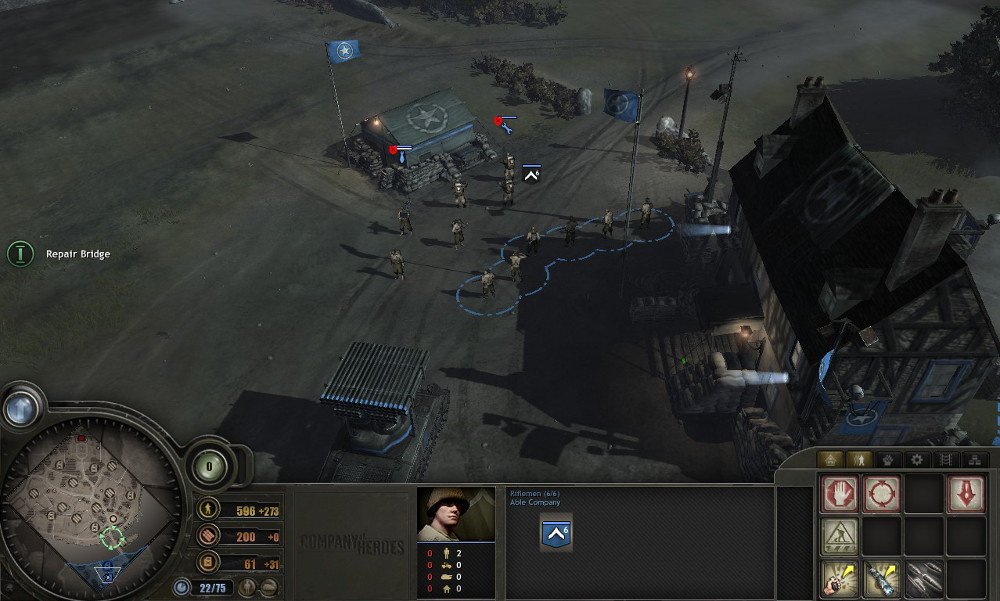
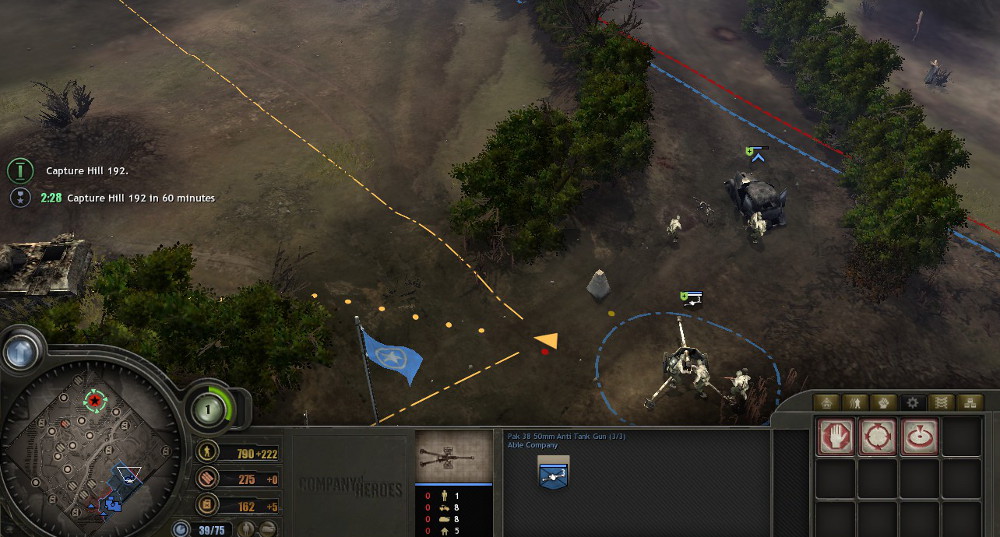
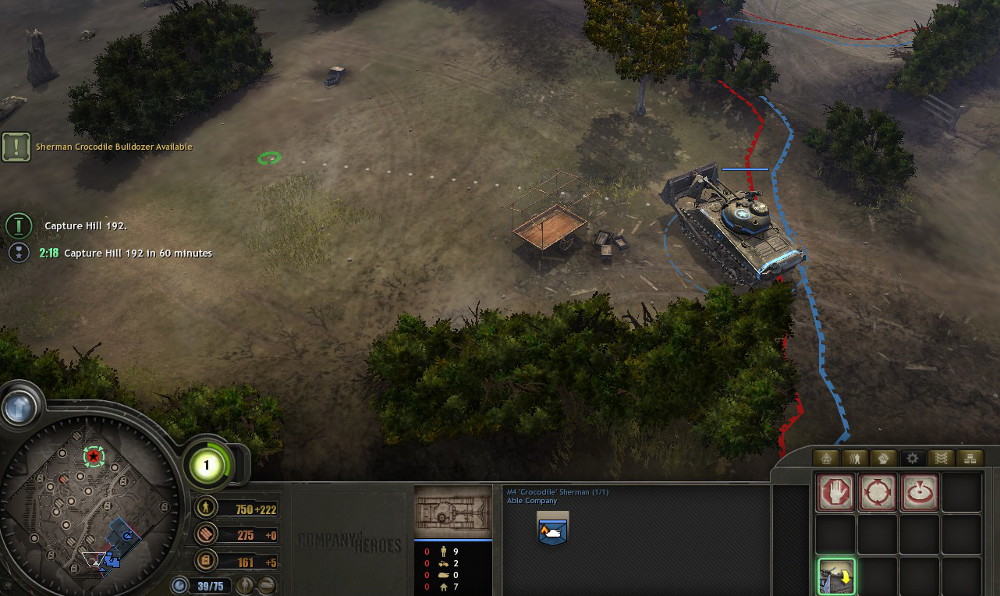
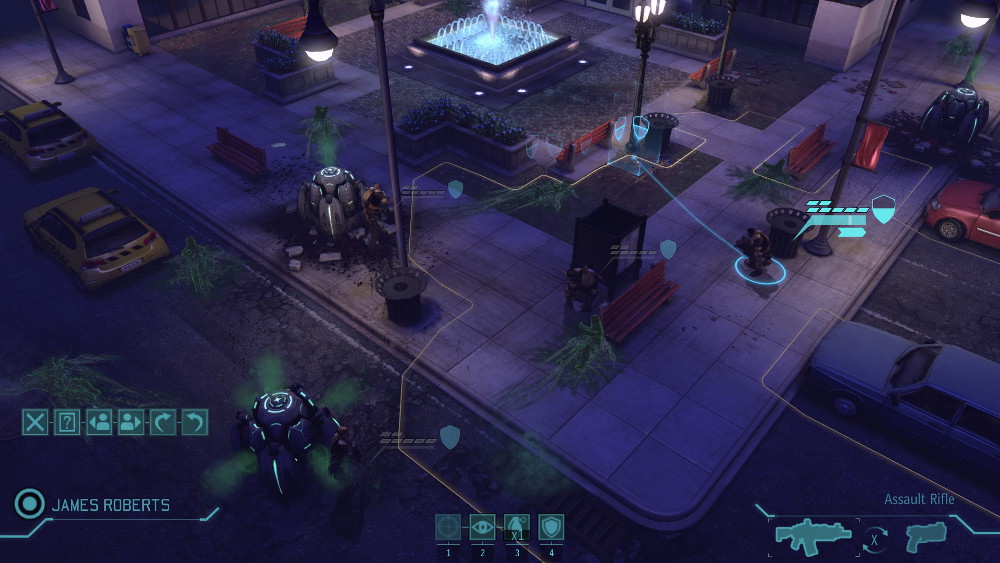
April 6, 2013 at 10:32 pm
I think CoH suffered because they tried to be a little too realistic with the units and their real life tactical application. The same mechanics seemed to work much better in Band of Brothers where you were giving orders to a small force. CoH also reminds me of the older Cossacks games. The necessary use of the pause button all the time makes them more like simultaneously resolving turn-based systems. Then again I do love turn-based games… maybe that’s part of the appeal to me.
April 8, 2013 at 10:39 am
Yeah, a smaller force seemed to work better for me. At the beginning of the campaign, the game was running me through some tutorial maps, and only gave me one or two squads to work with. I really felt like I had a handle on things, until they started throwing more units at me and I couldn’t keep track of it all. Limiting the scope could have been another way to keep CoH real-time without overwhelming the player.